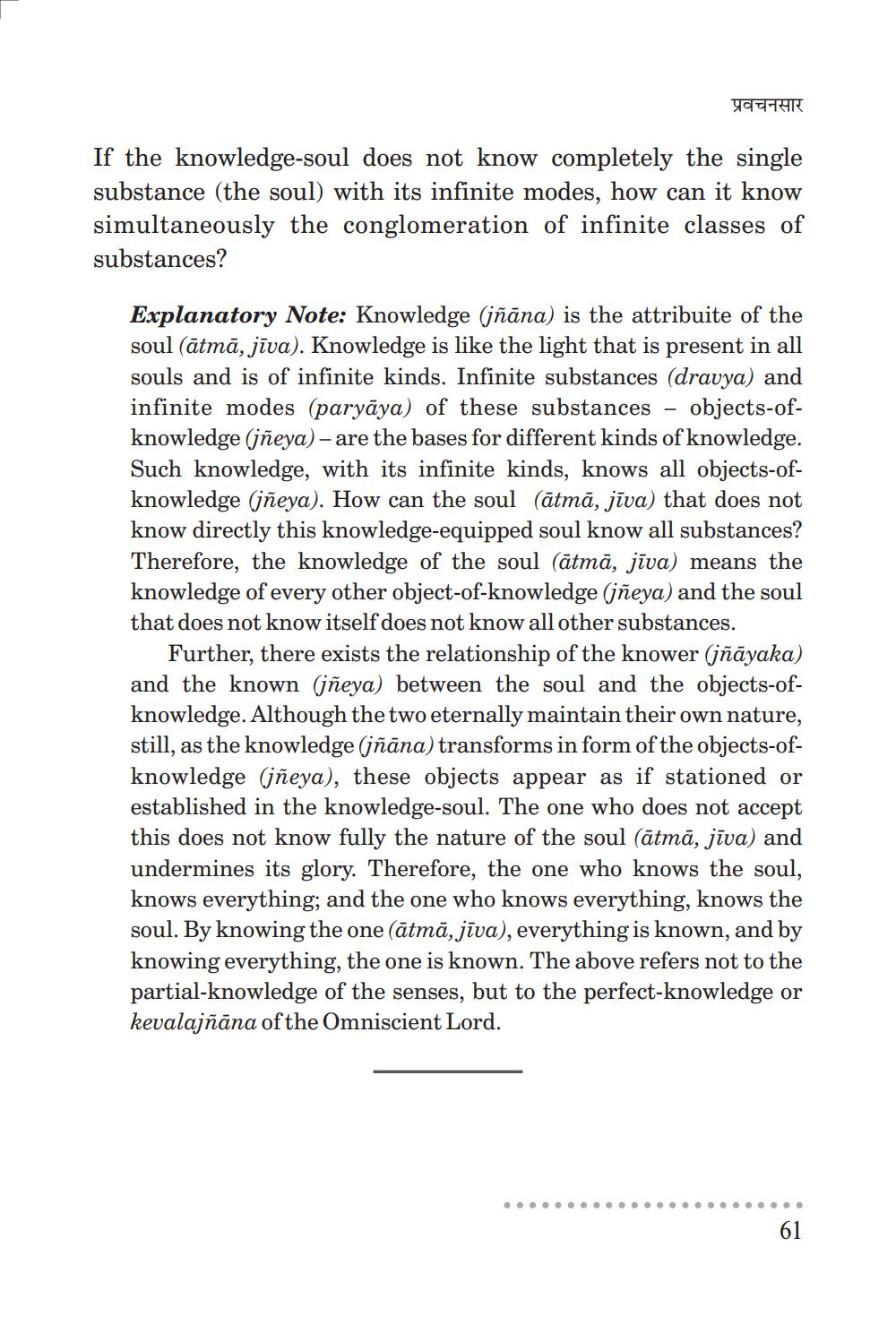________________
प्रवचनसार
If the knowledge-soul does not know completely the single substance (the soul) with its infinite modes, how can it know simultaneously the conglomeration of infinite classes of substances?
Explanatory Note: Knowledge (jñāna) is the attribuite of the soul (ātmā, jiva). Knowledge is like the light that is present in all souls and is of infinite kinds. Infinite substances (dravya) and infinite modes (paryaya) of these substances objects-ofknowledge (jñeya) - are the bases for different kinds of knowledge. Such knowledge, with its infinite kinds, knows all objects-ofknowledge (jñeya). How can the soul (ātmā, jiva) that does not know directly this knowledge-equipped soul know all substances? Therefore, the knowledge of the soul (ātmā, jiva) means the knowledge of every other object-of-knowledge (jñeya) and the soul that does not know itself does not know all other substances.
-
Further, there exists the relationship of the knower (jñāyaka) and the known (jñeya) between the soul and the objects-ofknowledge. Although the two eternally maintain their own nature, still, as the knowledge (jñāna) transforms in form of the objects-ofknowledge (jñeya), these objects appear as if stationed or established in the knowledge-soul. The one who does not accept this does not know fully the nature of the soul (ātmā, jīva) and undermines its glory. Therefore, the one who knows the soul, knows everything; and the one who knows everything, knows the soul. By knowing the one (ātmā, jiva), everything is known, and by knowing everything, the one is known. The above refers not to the partial-knowledge of the senses, but to the perfect-knowledge or kevalajñāna of the Omniscient Lord.
.............
61




